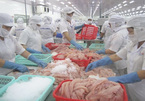However, Chu Thang Trung, deputy director of the Trade Remedies Authority of Vietnam under the Ministry of Industry and Trade explained why he sees little reason to be pessimistic about the recent rise in trade remedy cases.
Reports have shown that the number of trade remedy cases for Vietnamese exports is currently increasing. How risky are these for the domestic industry?
 |
| Chu Thang Trung, deputy director of the Trade Remedies Authority of Vietnam under the Ministry of Industry and Trade |
Trade remedies are appropriate policy instruments recognised by the World Trade Organization (WTO) and used by its members in international trade. According to WTO statistics, since 1995, there have been more than 4,500 trade remedies applied by its members. Thus, it is not unusual for exports to encounter remedies in international trade.
However, trade defence investigations against Vietnamese exports have indeed been increasing recently, for several reasons.
Firstly, the Vietnamese economy is simply further developing its capacity which, in turn, also means that exports continue to rise. With rising exports, cases of trade remedies become more frequent.
Secondly, along with its active economic integration, Vietnam participates in many free trade agreements, which vastly remove tariff barriers on our nation’s exports. On the one hand, this makes Vietnam’s exports more competitive in many markets.
On the other hand, it also puts pressure on domestic businesses in importing markets, thus forcing their agencies to look for legal policy tools to protect their interests, including trade defence instruments.
Therefore, to put it simply, Vietnamese exports are facing more foreign trade defence investigations as the country is continuously raising its participation in global value chains. However, this also shows the growing production and export capacity of our economy.
Moreover, as some markets are beginning to pay more attention to the protection of their domestic manufacturing industry, and even use controversial measures, more tensions and conflicts of interest between markets may arise. In this context, Vietnam’s exports may face trade remedies even more frequently.
Do you think that Vietnam’s exports will be at a disadvantage when they are being investigated and face trade remedies?
Of course, when an export item is under investigation, trade remedies may be applied, and the commodity could see its price competitiveness decrease consequently.
However, not all trade remedy investigations lead to unfavourable results. The WTO allows its members to apply trade remedies, but such application must also go through an investigative process with strict conditions and procedures laid down in the WTO’s agreements.
Therefore, if exporting enterprises are cooperating well with foreign agencies and provide sufficient information, the investigation may lead to the conclusion that the trade remedies were unfounded.
However, even if trade remedies are applied, in some cases their effects might be less harmful than initially thought. For instance, if the exported goods of a Vietnamese company are subject to a low trade defence tax, competitors may be imposed a higher tax, thus affecting our company only marginally.
How does your department support domestic enterprises when exporting goods to foreign markets and avoiding trade remedies?
Firstly, the Trade Remedies Authority (TRA) has built an early warning system for those industries and products which are most at risk of facing trade remedy investigations. The list is built on experience and based on items that have previously been subject to investigations, including those from third countries that we know of.
Interested businesses can regularly monitor every product line and make appropriate adjustments to limit trade defence cases. The list is regularly updated on the website of the TRA.
Secondly, the TRA maintains continuous communication with other markets’ trade defence agencies, Vietnamese representatives, associations, and businesses abroad to keep itself up to date and provide all relevant parties with news on trade remedies.
Thirdly, in order to maximise the protection of domestic manufacturers’ legitimate rights and interests, the TRA monitors and supports Vietnamese enterprises to express their counter-views, refute any unwarranted arguments, and detect the possible violations of the WTO rules amid investigations.
Moreover, the TRA also serves as a bridge between the business community and the government to assist businesses in handling their cases.
Lastly, it strives to raise awareness among exporters and provides them with the necessary knowledge to manoeuvre foreign markets securely. This also supports them in responding promptly, proactively, and properly to allegations made by foreign trade defence agencies. VIR
Van Nguyen

Trade remedies imposed on Vietnamese goods surge
Vietnam was among four countries worldwide subject to the largest number of trade remedies from January to September 2020, according to the Ministry of Industry and Trade.